Review: Dudamel's Baptism by Fire Turns in a Solid, Throbbing OTELLO at the Met
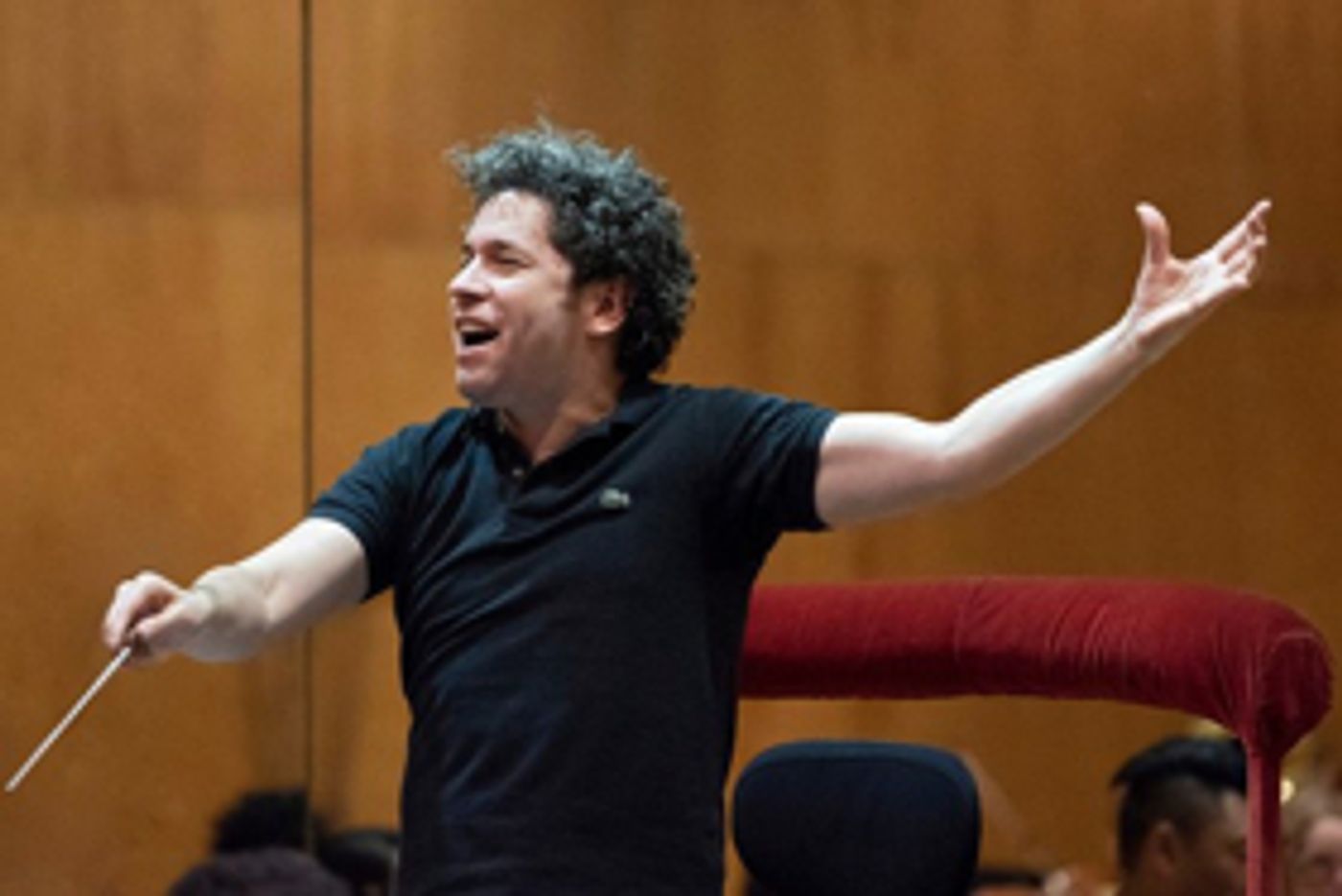
Photo: Jonathan Tichler/Met Opera
Talk about baptism by fire! That's what Gustavo Dudamel--that wunderkind of the classical conducting world--faced as he reached the podium of the Met for the first time Friday night. Not only was he conducting Verdi's OTELLO--in some quarters, considered the greatest of operas--but he was doing so with a last-minute substitute in the title role.
The result: Not to worry. All went well with the Met's production of the masterwork, with solid performances from the leads, the Met's great orchestra and chorus (under Donald Palumbo), adding up to another dynamic feather in Dudamel's cap.
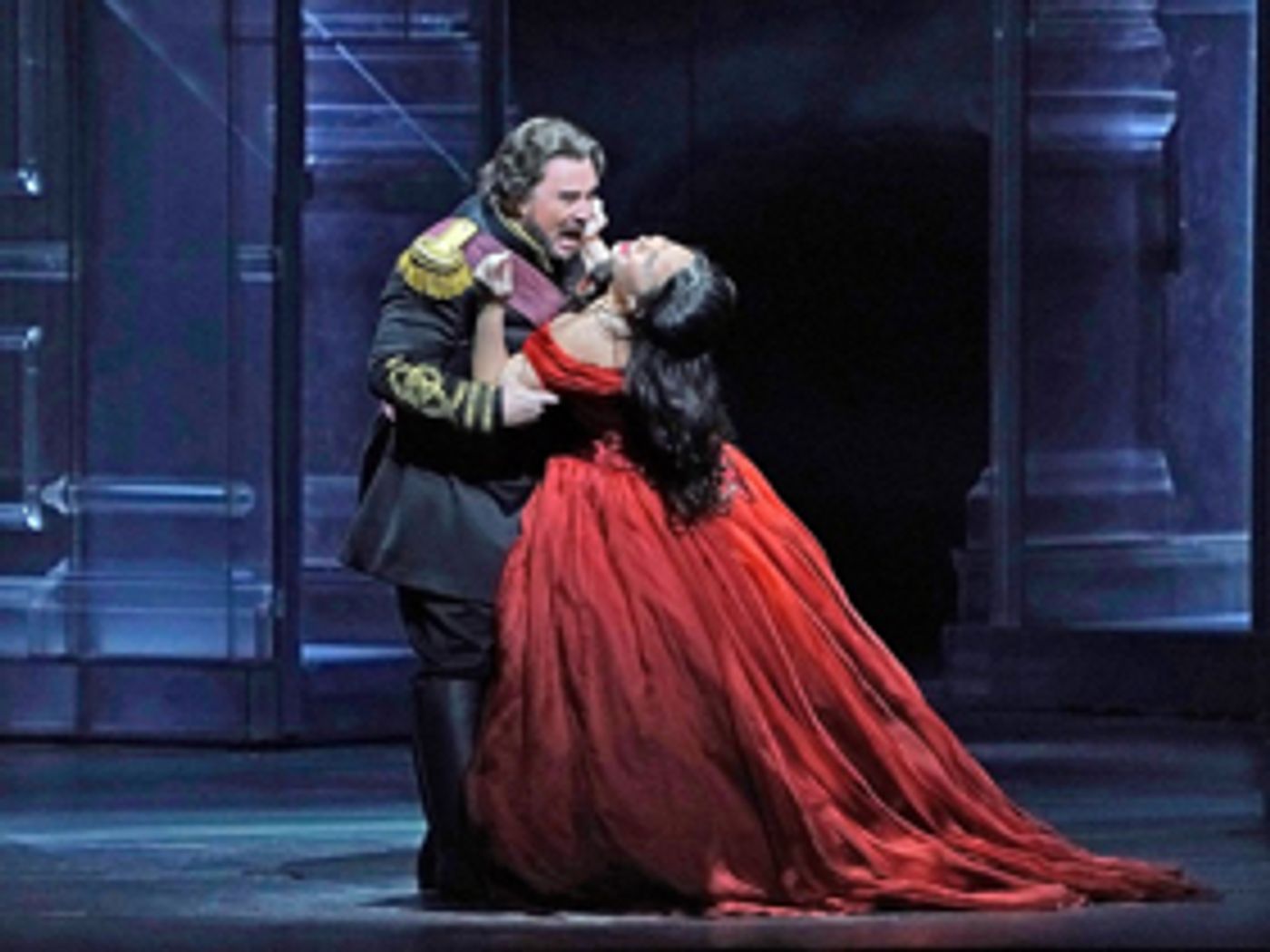
Desdemona. Photo: Ken Howard / Met Opera
Tenor Stuart Skelton, best known in these parts for starring in the Met's latest iteration of TRISTAN UND ISOLDE, was ill and Carl Tanner, his understudy--'cover' in opera lingo--went on. Tanner did well for himself: There was enough notice that he did the dress rehearsal and his big, burly tenor sounded just fine at the opening, with all the stamina that the role calls for and none of the strain or barking that some others have displayed in the role. If he was nervous, the audience never got wind of it, though there might have been a tad more nuance with more notice before his house role debut.
It helped, of course, that the other two leads were part of the Bartlett Sher production when it was new, back in 2015.
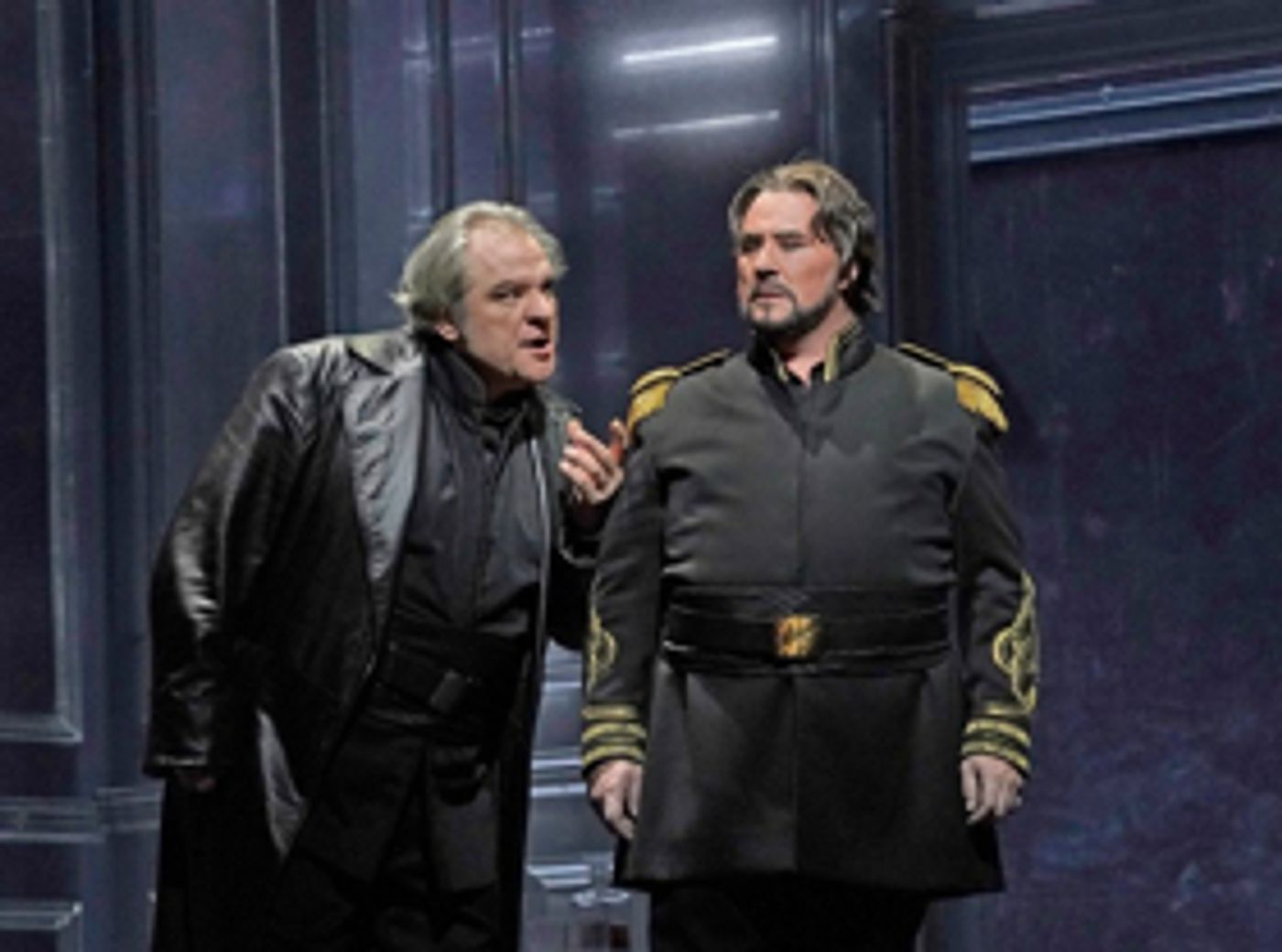
Otello. Photo: Ken Howard/Met Opera
This time around, under revival director Gina Lapinski, baritone Zeljko Lucic's Iago--the evil mastermind of Otello's downfall--struck me as better than he was before, appearing oily to the audience but smooth as silk to the title character. I would have liked him better if I could have seen some growth to his evil; he latched on to the character's resentments toward Otello early on, like a dog with a bone, and stayed there, determined to bite his way through.
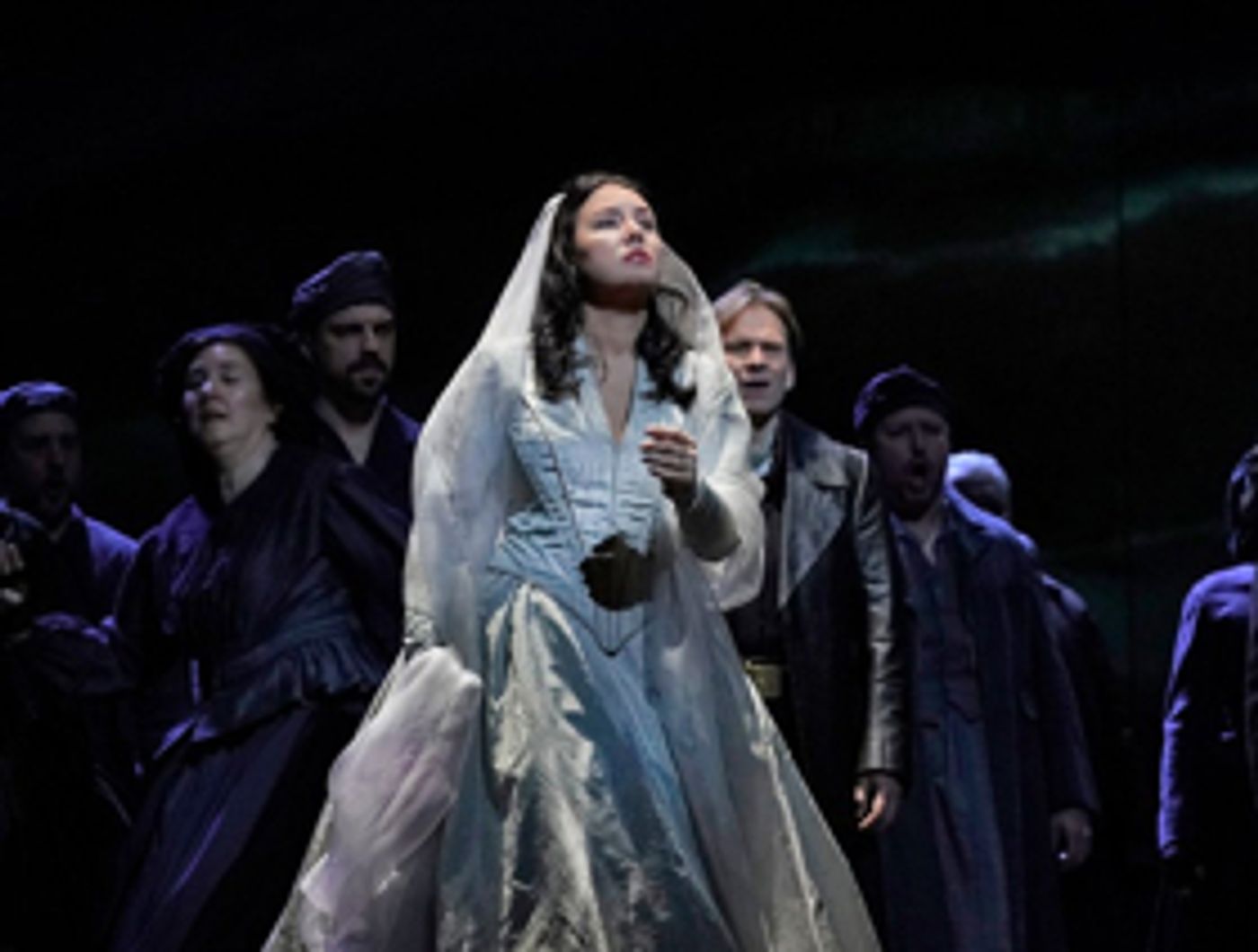
Photo: Ken Howard/Met Opera
When the production premiered, Sonya Yoncheva's Desdemona (that's Dez-DAY-mo-na, rather than Shakespeare's Dez-duh-MO-na) stole the show and this time it was no different, though her Otello and Iago gave her more competition this time. Looking utterly glamorous in Catherine Gruber's gorgeous costumes, she was no shrinking violet but determined to have her views heard, in coming to the defense of Cassio, another of Iago's stooges.
Her eventual victimhood, however, waiting for the mad Otello to strangle her, was pretty hard to take in these #Metoo times. But her singing was outstanding, in its steely, Eastern European way, whether in leading her late-arriving partner in the famous love duet of Act I or the breathtaking Willow Song ("Salce, salce...") and "Ave Maria" of Act IV. (For the record, the performance was done with a single intermission, after Act II.)
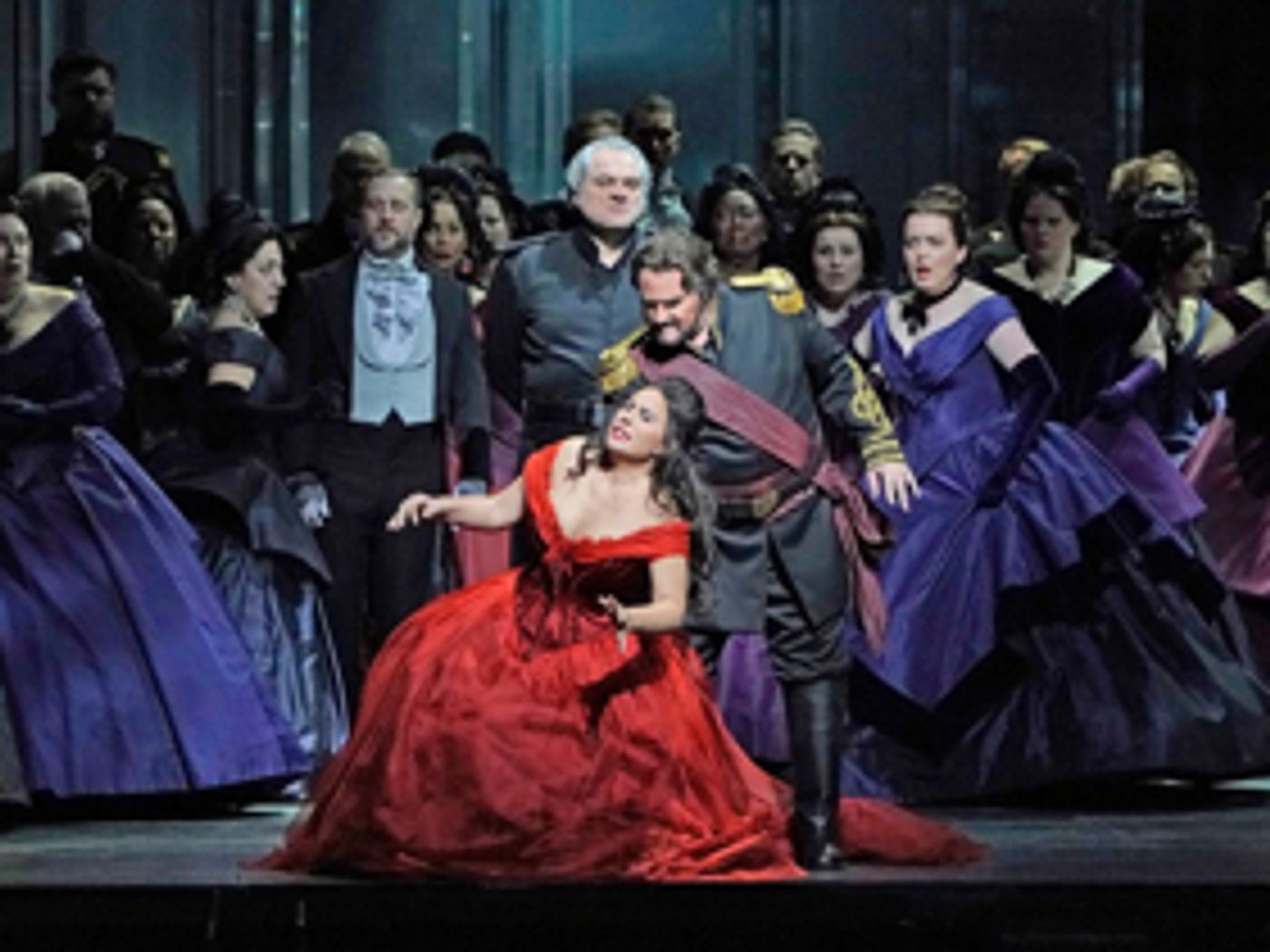
Mezzo Jennifer Johnson Cano was luxury casting as Iago's wife, Emilia, and made us wish that more of the role that was written by Shakespeare had made it into Arrigo Boito's first-rate libretto. Tenor Chad Shelton did some fine work as Roderigo, Iago's lieutenant. For me, the weak link in the major roles was the Cassio of tenor Alexey Dolgov, who came across as more of a boy-toy than the army man who would inherit Otello's position as governor of Cyprus.
All these people lived in Es Devlin's "glass house" of a set, with Donald Holder's gloomy lighting, where there was no place to run or hide. Life is dark and foreboding in Sher's vision of the work, from the first notes of the overture, and we never get to see any of the brilliant sunshine of Cyprus, where the opera is set.
There were places when the projections by Lukas Hall were wonderful in setting the scene--for example, the churning seas of the work's opening storm as Otello's ship reaches port, or when the delegation from Venice [headed by an overparted James Morris as Lodovico] arrives to appoint a new governor and the buildings take shape as a kind of etch-a-sketch. At other times, however, their relentless movement brought on motion sickness, which was also a problem with Devlin's ever-shifting sets.
Any misgivings aside, this was a night for Dudamel to howl--as the audience did when he came out for his curtain call. This was the second time in ten days--the other, Music director Yannick Nezet Seguin's TRAVIATA--when the Met audience saved its greatest cheers for the conductor. Welcome, Gustavo!
###
Additional performances of OTELLO will take place on December 17, 21 and 28; and January 2, 5mat and 10. Running time: 2 hours and 55 minutes, with one intermission. Curtain times vary: complete schedule here.
Tickets begin at $25; for prices, more information, or to place an order, please call (212) 362-6000 or visit www.metopera.org. Special rates for groups of 10 or more are available by calling (212) 341-5410 or visiting www.metopera.org/groups.
Same-day $25 rush tickets for all performances of OTELLO are available on a first-come, first-served basis on the Met's Web site. Tickets will go on sale for performances Monday-Friday at noon, matinees four hours before curtain, and Saturday evenings at 2pm. For more information on rush tickets, click here.
Reader Reviews
Videos

